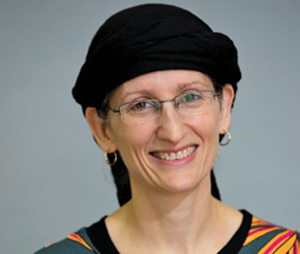
Frightening news about shootings in synagogues throughout the world has made many of us wonder: How do we protect ourselves and our families? While this question feels new, it is also very old; so often through the centuries of our exile we have found ourselves at the mercy of cruel rulers, merciless neighbors and marauding mobs. How do we defend ourselves?
Yaakov’s initial response was to run. When he takes the blessings meant for Esav and Esav resolves to kill him for it, Yaakov leaves home and seeks shelter abroad with his uncle Lavan. When he returns to Israel after more than 20 years in Lavan’s house, he reaches out proactively to Esav to try to smooth things over but is alarmed to hear that Esav is approaching with 400 men. It seems that Esav has neither forgotten nor forgiven, and now he is coming to wipe out Yaakov’s whole family! Rashi (Genesis 32:9), quoting the Midrash Tanchuma, explains that Yaakov prepares for his confrontation with Esav in three ways: with doron (gifts), with prayer and with war. Do any of these methods have parallels for us today?
Yaakov sends gifts to Esav, hundreds of cattle of all types, sent in waves to impress and appease him. Yaakov’s tefillah is heartfelt and humble, as he begs God for help, speaking of God’s past kindness and loyalty to him and beseeching Him to save Yaakov and his family. His preparation for “war,” in the words of the Midrash, involves splitting his family into two camps; if Esav attacks one camp, the other camp can run away (32:9). How do the ways in which we prepare for today’s confrontations compare with the ways in which Yaakov, our forefather, prepared for his?
What is the doron, the method of appeasement, that we have used? For centuries, it was bribes— offering ransom to help Jews escape imprisonment or murder, from the Crusades to the Inquisition to Nazi Germany. What is the modern State of Israel’s parallel to doron? We engage in diplomacy, in discussions with other nations to maintain a positive relationship, through trade, cultural exchange, and mutual respect and understanding. What a gift from God that Israel’s diplomatic status has been rising, and that our version of this method to deal with the enemy has developed to this level of mutual respect. Nations around the world respect us and see that they have so much to gain from associating with us.
Yaakov prepares for confrontation by splitting his camp and hoping for an opportunity to escape. Throughout our exile, we, too, have usually despaired of actually defending ourselves and hoped, at the most, to escape with our lives. How different things are today, thank God. Today, the Jewish homeland fields the most feared army in the Middle East, a model for other nations.
Our third son has just begun his army service as his brothers did before him, and we are so proud and thankful to God that as Jews we can defend ourselves. Our army is called the Israel Defense Forces, emphasizing its purpose to defend our homeland, but our idea of “defense” has progressed from hoping that half of our family survives to developing a force equipped with the training and sophisticated tools to enable us to meet any challenge in our region, God willing.
Yaakov’s third mode, tefillah, remains as key for us as it was for him. Though our army is strong, God’s help is crucial in every military interaction. We pray that our soldiers, our children, as highly trained and well-equipped as they are, will be successful and safe. We in Israel are humbled by God’s kindness in bringing us to this point, as Yaakov was humbled by God’s generosity to him. We beseech Him every day to continue to protect us and our soldiers. As we say in the prayer for Tzahal, “May the verse be fulfilled for them, ‘For Hashem your God goes with you, to fight for you against your enemies, to save you.’”
Rabbanit Sally Mayer serves as rosh midrasha at Midreshet Lindenbaum’s Overseas Program. She is a member of the Mizrachi Speakers Bureau (www.mizrachi.org/speakers).










